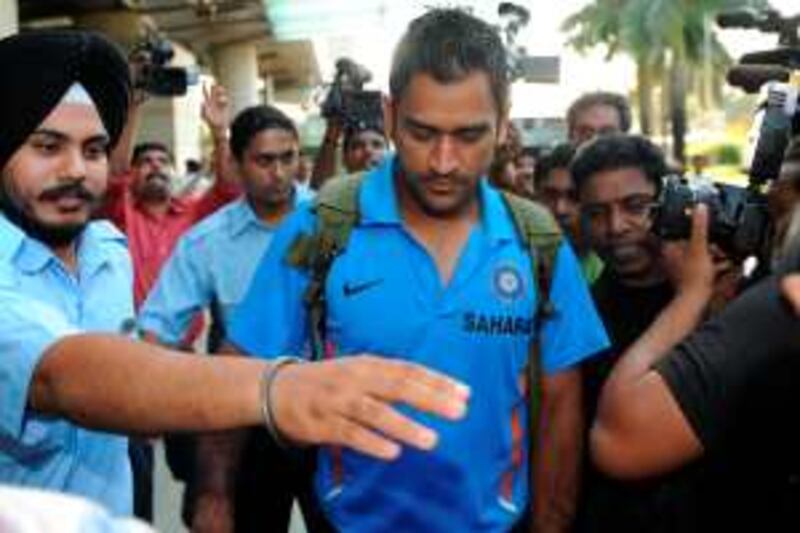As South African cricket entered what they hoped was a new era after their shocking exit from the World Cup in 2003, the former India all-rounder-turned-television expert Ravi Shastri received an invitation to talk to their players on how to deal with the media. As proud as we were an Indian had been chosen to help South Africa through what was bound to be a tough transition, it was ironic someone from my country had been chosen in the first place.
Indians have never been experts at dealing with members of the fourth estate. In fact, Shastri was never even approached by the Board of Control for Cricket in India (BCCI) to help players project a better image. Despite the huge influence - both good and bad - of the media and with more money around than ever before, current Indian players are still not trained enough to deal with newspapers, television, radio or the internet. Blame it on the BCCI, who believe the media is nothing more than a pest.
We saw this week the power of a big story when Gary Kirsten, the India coach, was sent to read out a statement two days after news broke of a document that he and the mental conditioning coach Paddy Upton circulated to the team. It told them that sex is good for performance. Kirsten was emphatic when he said that it was not him who made the suggestion, but Upton. It must have been tough to say that because the two are great friends and Upton was brought in on his recommendation. The leak has left deep scars on the team and as one wise expert reckoned, it will be used as a needle in a bit of gamesmanship, which a lot of people like to call sledging.
For the Indians, it came as a culture shock and knowing how the authorities work, Upton should not be too optimistic about his future. Even Kirsten would not be able to combat the power of the board on his colleague's behalf. The controversy surrounding the document could have been handled better, but the board simply does not have the public relations machinery to do it. Their communications department is restricted to one man at the headquarters in Mumbai. All media statements come from Chennai from the board secretary N Srinivasan, who believes in keeping his press notes very short and not too sweet.
The team, playing in the Champions Trophy in South Africa, is so upset with the media that they refuse to interact with them on a daily basis like other top teams do. Obviously, this approach has the blessings of the captain Mahendra Singh Dhoni, whose relations with the media have never been the same following his reported tiff with vice-captain Virender Sehwag during the World Twenty20 in England.
Dhoni, like Srinivasan - his boss at the Indian Premier League team Chennai Super Kings - does not believe in media relations. This has led to an ugly situation. I know a few fellow tribesmen who hoped for India to fail against Pakistan in their Champions Trophy opener so that they could get back at the team. Not that a group of travelling journalists should be a bunch of supporters, but the revenge game could be dangerous for it blurs your perspective which, to be fair, the media in India needs to have a bit more of.
A leading national daily had this headline on its front page on Sunday after their loss to Pakistan: "India off to disastrous start." Hello, India lost by 54 runs chasing a target of 303. No longer is cricket viewed as a game where one side can plunder a huge total while the other side succumbs to pressure in the form of good bowling and fielding. That is why it is a sport, is it not? It was amusing to see how the media followed up on the Upton document. One writer called it an "ugly leak" when the very man is known for digging up dirt at the start of every tour and reporting back nothing but lies that his trusting bosses lap up.
Dhoni would be best advised to swallow his ego and meet the press more often. That would make his job easier. He is not the first captain to feel the media heat. All leaders have to. Captaining India is akin to running public office. When Mark Taylor took over the Australia team's captaincy from Allan Border in 1994, he had a meeting with a few influential cricket writers. Here is what he told them over dinner (reproduced from Taylor's autobiography Time to Declare): "I'm Mark Taylor - and I want to start nought for nought with you guys. If I have bad times and handle you blokes badly, well, I'll accept the consequences of that. But I want to start with an absolutely clean slate? with no handicap."
Fair enough said the journalists and both parties went about their jobs. There were times when Taylor lost his form and copped a fair dollop of criticism. But when he thought things got to unreasonable lengths, he did something about it like disallowing a journalist from attending his press conference when he felt hard done by. "You can't be serious," a journalist once told Taylor. Next thing he heard was: "Mate, I can tell you I'm very serious. I am very, very disappointed with the stuff you wrote before this game." Taylor had his way and the matter was sorted out.
Dhoni would do better to confront the problem rather than run away. And he should knock on Shastri's door one of these days. sports@thenational.ae Clayton Murzello is the Group Sports Editor of the Indian newspaper Midday





